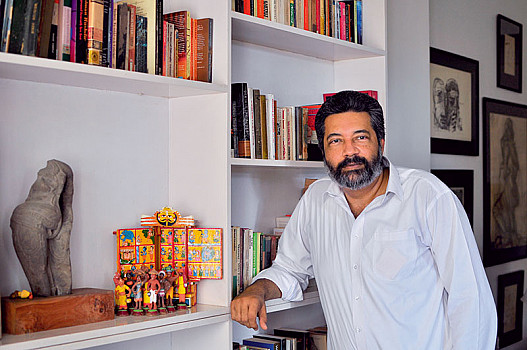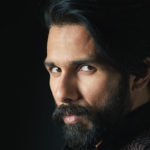Lyrical And Lethal
Close its pages…and you’d be forgiven for thinking this is Farhad Sorabjee’s nth book. Fact is it’s just his first. The compelling fluency with which the writer, eyes misleadingly more dreamy than he really is, has fine-crafted God On Every Wind assures he is no ordinary wordsmith.
Recently, in a gratifying double bill of sorts, the corporate lawyer-playwright saw the curtain go up on his gritty cross-border play, Hard Places – with its UK premiere a day before his publishers, Parthian, launched his debut novel for a rapt audience at the Red Lion Bookshop in Colchester.
As much about evolving personalities as it is about shifting politics, the book, already available online and soon in India, tests themes of love and longing, betrayed faith and tired idealism, fragile friendships and life-changing battles. Chronicling benign to brutal characters in engaging detail and rhythmic cadence (the title itself from William Blake’s visionary verse), God On Every Wind is a rich read.
Born of interesting mixed parentage, feisty young Philomena DaCruz is attracted to African exile, Nestor Musambe in a quirky encounter on a Mumbai street. Following Nestor to the land of his roots ravaged by civil war forces the question: How far should limits of individual and national revolution stretch?
Indian Independence and Partition occupy poignant passages early in the novel. Lyrical to lethal, the prose slips between romance and rebellion fluidly. Sorabjee warmed to fiction while contributing to The Elphinstonian magazine published by Elphinstone College where he was an Economics Honours student.
Quick to pronounce writing “lonely and unglamorous” Sorabjee squeezes his passion into a day packed with legalese. Besides being father to a 12 and eight-year-old with wife, Anu Chowdhury-Sorabjee, key member of the artisans’ foundation Paramparik Karigar. His own fiction favourites include Anita Desai, Salman Rushdie and Graham Greene whose Brighton Rock he is currently re-reading. But he is far from done. There is the desire to pack in music too. Confessing he wants to learn the cello – “a beautiful instrument” – Sorabjee admits to having tried notes of a few preferred jazz pieces on the saxophone.
In a sense, his profession (an established practice in commercial and corporate litigation) fed the writing dream. “Much like drafting a legal argument and then running your pen through tracts, it’s vital to pace things after checking where they jump and where they waver,” he advises. “Yet, a writer must instinctively know when to cut off. Over-revision is dangerous and can mess up a book.”
First novels are notoriously laborious. Asked if his is eventually the book he originally set out to write, he says, “There certainly were the bare bones of a story when I started, but if a process takes five years to complete in first draft form, as this did, there are bound to be twists and turns along the way. When done and dusted, and you sit back and look at it, there are obvious changes of tone and setting. I believe they represent the big phases of a life: the joyous rush of youth, duty-laden middle age when the world crashes the party and the gentle nostalgic drift of the closing years.”
Despite an evocatively layered narrative beginning in the 1960s-’70s Mumbai that Sorabjee grew up in, God On Every Wind is not autobiographical – “And thank God for that. You must spin stories from imagination. To only write from experience is at best limiting and at worst sorry navel-gazing. The Africa of the middle period is a fictional landscape. References to local customs are deliberately drawn from diverse parts of the continent, to leave it non-specific to one country. It’s arrogant to swan into one tiny corner of the place and come away with a badge of grand authenticity.”
Has it been a conscious decision to focus more on his heroine than Nestor? “The book was always primarily about Philomena. The love story is an exploration of her character. Nestor’s work is important, but his character and the interplay of what war and circumstance do to their relationship, has been more important to develop.”
Such a remarkably assured debut is reason enough to check his advice for new novelists. “I’m not sure I’m not a novice novelist too, so it’s best I keep a sense on perspective on any achievement and avoid any pompous declamations!” he laughs. “I’d say, work hard, pushing yourself away from comfort zones, they make for lazy output.”
Here is accomplished writing to welcome, weaving versatile swathes across vastly different time and turf with uncommon grace. It’s welcome and salaam to a strong new voice in Indo-English fiction.
Related posts from Verve:
Verve Trending
Sorry. No data so far.
us on Facebook to stay updated with the latest trends






